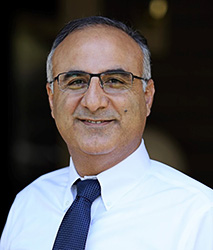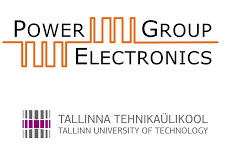|
Adel Nasiri
University of South Carolina
301 Main St, Rm 3A32
Columbia, South Carolina 29208
Telephone: 803-576-7796
E-mail: nasiri@sc.edu
Website: sc.edu
 Prof. Adel Nasiri joined the University of South Carolina (USC) in August 2021 after a 16-year career at the University of Wisconsin-Milwaukee (UWM). Prof. Nasiri has served as a primary investigator on many federal and industry sponsored projects. His research interests are high power/voltage energy conversion, energy storage, and microgrids. Dr. Nasiri has published numerous technical journal and conference papers on related topics. He also holds seven patents and has co-authored two books. Prof. Adel Nasiri joined the University of South Carolina (USC) in August 2021 after a 16-year career at the University of Wisconsin-Milwaukee (UWM). Prof. Nasiri has served as a primary investigator on many federal and industry sponsored projects. His research interests are high power/voltage energy conversion, energy storage, and microgrids. Dr. Nasiri has published numerous technical journal and conference papers on related topics. He also holds seven patents and has co-authored two books.
Dr. Nasiri is currently the chair of IEEE Industry Applications Society (IAS) Committee on renewable and sustainable energy conversion and Vice Chair TC5 (sustainable energy systems) at IEEE Power Electronics Society (PELS). He is also an Editor of Power Components and Systems, and Associate Editor of the International Journal of Power Electronics and was an Editor of IEEE Transactions on Smart Grid (2013-2019) and paper review chair for IAS (2018-2019). He was the general Chair of 2012 IEEE Symposium on Sensorless Electric Drives, 2014 International Conference on Renewable Energy Research and Applications (ICRERA 2014), and 2014 IEEE Power Electronics and Machines for Wind and Water Applications (PEMWA 2014).
Power Electronics Group, Tallinn University of Technology
Andrii Chub
Ehitajate tee 5, NRG-402
Tallinn, Harjumaa 19086
Estonia
Telephone: +0037254592062
E-mail: andrii.chub@taltech.ee
Web site: taltech.ee

Founded in 1918, Tallinn University of Technology (TalTech), located in Tallinn, the capital of Estonia, is the only university of technology in Estonia. It is an international university in the with around 10,000 students including 1,350 international students from nearly 100 different countries. Research in the Power Electronics Group, Tallinn University of Technology is focused on the development and experimental validation of new state of the art power electronic converters for such demanding applications as rolling stock, automotive, telecom and renewable energy systems. Key research directions include synthesis of new converter topologies, development of special control and protection algorithms, implementation of new components and elaboration of design guidelines to further improve the efficiency, power density, reliability and flexibility of the on-market power electronic converters. Other research activities are concentrated on the development of power flow control algorithms and new supervision, fault detection, protection and communication methods for the electronic power distribution networks (Micro- and SmartGrids).
|



